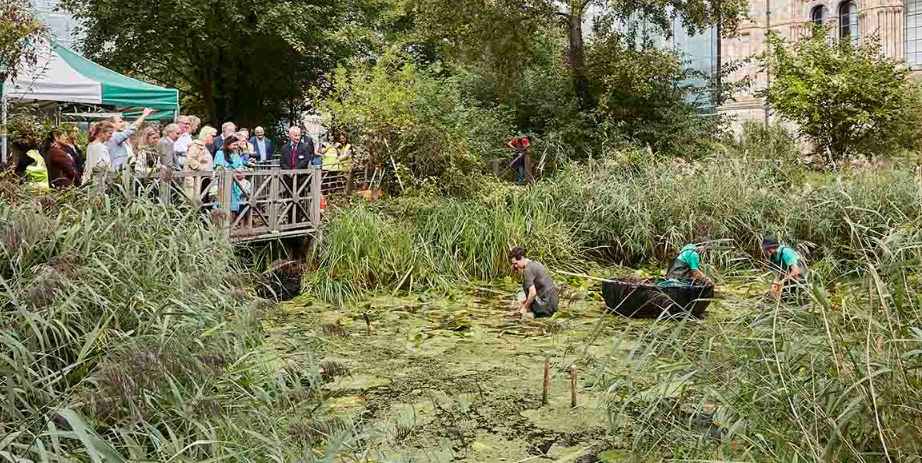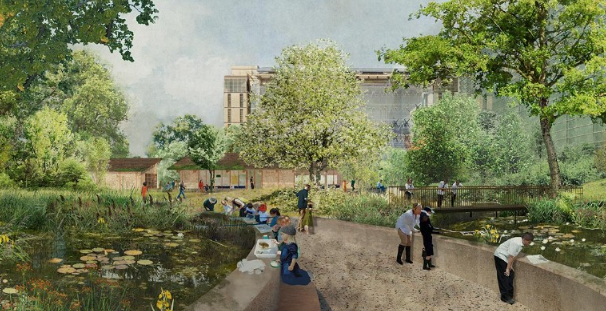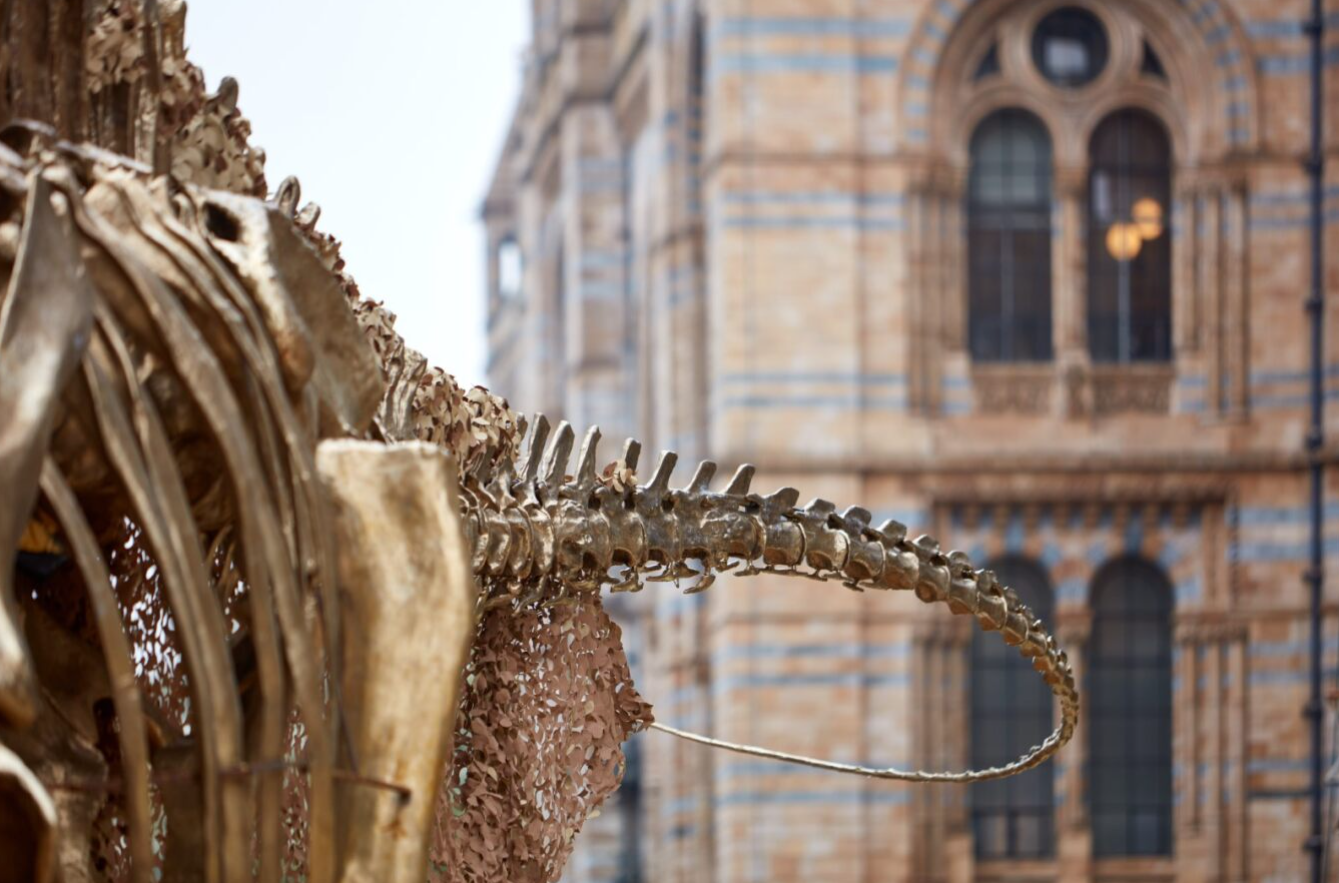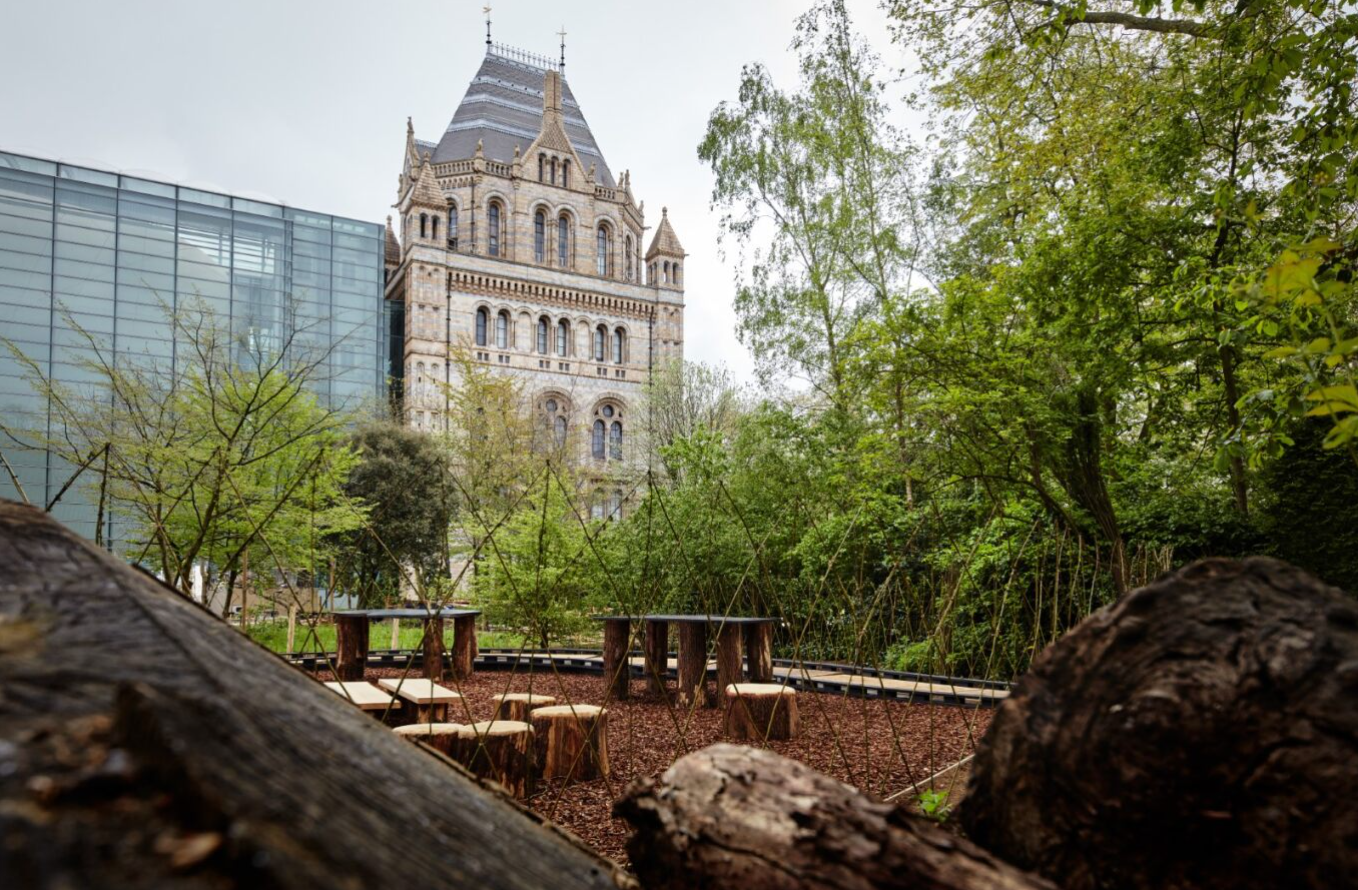
Since the Natural History Museum’s opening in 1881, its gardens have continually evolved. Originally the gardens were set aside for future expansion of the building but, lack of money resulted in a smaller building and landscaped buildings. Over the years, the garden also had a number of other functions including as allotments to support the troops during the First World War and later used for decomposing whale carcasses in sandpits for exhibitions, the gardens have undergone significant changes over the years.
In 2022, the five-acre gardens were closed for another transformation. As part of a wider Urban Nature Project to support urban nature recovery across the UK, the new gardens will create a welcoming, accessible, and biologically diverse free, green space in the heart of London, opened on 18th July 2024.
Visitors entering the garden from the Exhibition Road area step into the Evolution Garden, embarking on a journey through 2.7 billion years of our planet's history. This immersive experience features a timeline showcasing plants, geology, and representations of reptiles, birds, and mammals. At the heart of the Jurassic garden, a stunning new bronze cast of the Museum's beloved Diplodocus will take center stage. Visitors can trace the footsteps of evolution, touch fossils, spot a grazing Hypsilophodon, and walk among the footprints of ancient ancestors.
The newly named Nature Discovery Garden (previously called the Wildlife Garden) will serve as a living laboratory, where visitors and scientists can identify and monitor wildlife in an urban environment. A network of sensors will collect environmental data and, together with environmental DNA data, build a picture of life in the gardens. This makes the gardens one of the most intensively studied urban sites of its kind, globally, and a testbed for conservation science innovation.
A new Nature Activity Centre provides essential facilities for scientific work, learning activities, and community support. Additionally, a new café and function space called The Garden Kitchen (opening this Autumn) offers a serene retreat within the bustling city.
This ambitious redevelopment not only creates a haven for wildlife but also champions sustainability in design. For example, during the development the project aimed to remove more carbon from the atmosphere than it contributed, use 100% renewable energy during construction and beyond and achieve zero-waste (to name just a few of the project aims). This resulted in it being recognised with the silver award in the European category at the Holcim Foundation Award for Sustainable Construction, a pioneering project!
To find out more about the project, click here. The gardens are free to visit and do not require booking tickets.



The iconic tail of the stunning new bronze cast of the Natural History Museum’s Diplodocus cast supported by Kusuma Trust is teased in front of the iconic terracotta building. © The Trustees of the Natural History Museum, London

The Natural History Museum’s newly transformed gardens will provide visitors with a new outdoor space to rest, relax and connect with nature. © The Trustees of the Natural History Museum, London